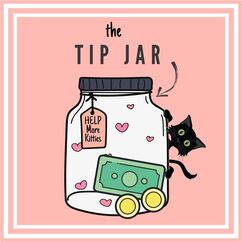Dr Jo Blogs
Expert Cat Care Advice
How do I tell if my cat is suffering & needs a vet?
Dr Jo Lewis MRCVS | 13 Sep 2021 | 5 min read
Share:
Many people with cats assume that euthanasia is the saddest and hardest part of being a vet but for me it is actually much worse to know that a cat is suffering because their human doesn't comprehend if or when veterinary help is needed. By better understanding what your cat's needs, they can lead a much improved quality and quantity of life right to its very end.
I've all too often encountered cats suffering from obvious and often perfectly treatable ailments, who's humans insist that their cat is "just getting old" and that they seem "fine". I am sure these people don't intentionally let their cats suffer, but it is often easier (and may seem cheaper) to explain away subtle signs with "it must be age" especially when the cat also gets stressed when visiting the vet. Part of my commitment to caring for cats starts with educating their humans on the subtle clues of feline disease.
I've all too often encountered cats suffering from obvious and often perfectly treatable ailments, who's humans insist that their cat is "just getting old" and that they seem "fine". I am sure these people don't intentionally let their cats suffer, but it is often easier (and may seem cheaper) to explain away subtle signs with "it must be age" especially when the cat also gets stressed when visiting the vet. Part of my commitment to caring for cats starts with educating their humans on the subtle clues of feline disease.
Cats are born survivors so they don't advertise their emotions or their pain!
This is a typical example - an older cat that no longer jumps up onto the bed. It is commonplace for people to say "but they don't seem to be in any pain" and they still keep doing it. This assumption is often based on the fact that their cat is not moaning/crying/complaining as we expect a human may do. Adaptable little creatures, cats will simply alter their behaviour to "cope" with their pain/hardships or simply just avoid situations which provoke pain - especially if from the cat's perspective the gain justifies the pain. It is this natural survival instinct that drives them on in the face of adversity but it doesn't mean they are not suffering and it certainly doesn't mean that they'd prefer to carry on without treatment.
Put yourself in Puss's boots!
I am sure most people can recall a time when they have suffered a thumping headache or nausea and had to "soldier on" regardless (especially if you are a carer or mother to human children!). But what if this was a daily occurrence and help was out of your control?
Imagine this situation from a cat's point of view....
Even if this went on intermittently for a long period of time, you would have little choice but to get on with your life but what a miserable existence that would be! You'd probably secretly be hoping that someone perceptive enough would notice and seek help on your behalf. This is the plight of our cats! The more we tune in to what your cat might be thinking, the more likely you are to catch diseases early when treatment is likely to be more effective and cheaper!
Imagine this situation from a cat's point of view....
- You have no means of getting access to drugs or a doctor
- You are unable to communicate to anyone how you were feeling
- An onlooker might observe that you didn't quite seem your "usual self".... You might have left a few bites of your sandwich...but you still ate most of your lunch (which you later threw up in private) and you were seen drinking some water. You visited the loo (even though only you know nothing actually happened). You still seemed to get on with your work and even drove home via the shops to grab some essentials.
Even if this went on intermittently for a long period of time, you would have little choice but to get on with your life but what a miserable existence that would be! You'd probably secretly be hoping that someone perceptive enough would notice and seek help on your behalf. This is the plight of our cats! The more we tune in to what your cat might be thinking, the more likely you are to catch diseases early when treatment is likely to be more effective and cheaper!
Clues your cat may be suffering from a treatable disease
Have you noticed any of the following?
- activity level changes– “slowing down” or sleeping more, hyperactivity/unsettled behaviour
- mobility issues - stiffness, avoidance of stairs or jumping up or down (using new/alternative routes to gain height is a clue somethings not right)
- breathing - heavier, faster, shallow or deeper than usual, mouth open, panting
- fainting episodes
- collapse, not moving or responding (more than the typical cat selective deafness, if in doubt rattle the treat bag!)
- weight changes (up or down)
- appetite changes (up or down)
- toileting habit changes - location, frequency, material produced
- drinking habit changes - volume, frequency, location
- vomiting - froth, yellow fluid, food, hairballs etc
- behaviour changes- increased irritability, being less interactive with the family, grooming less or more, vocalization at night, being messy with their litter box?
If you answered YES to any of these, or are unsure, then please contact your vet to discuss booking a wellness check up.





